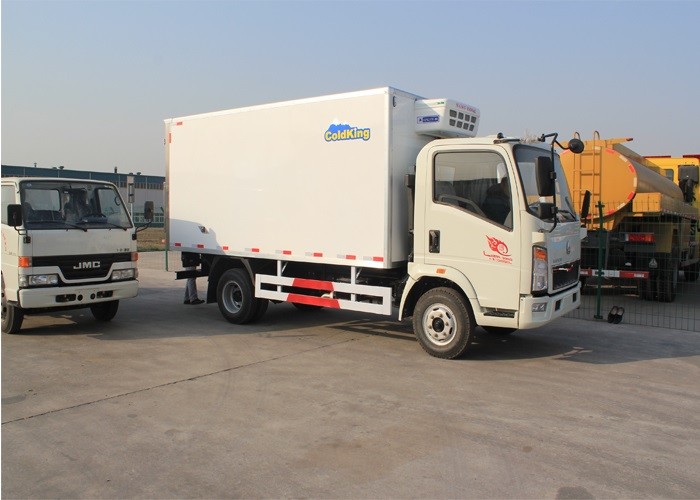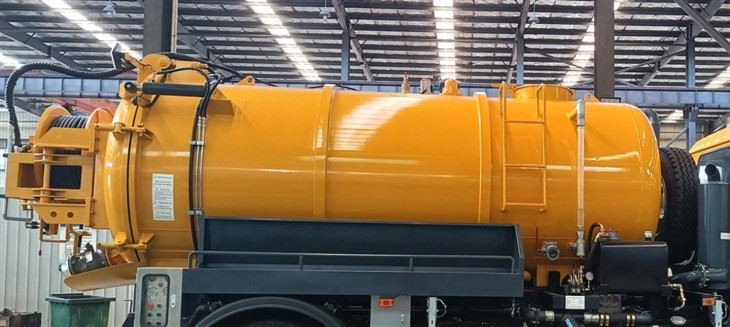Introduction
Semi truck freezers have become an essential aspect of the transportation industry, particularly for those dealing with perishables. From groceries to pharmaceuticals, maintaining temperature-sensitive goods is vital for safety and quality. This article will delve into various aspects of semi truck freezers, exploring their types, benefits, common uses, maintenance tips, and much more to equip you with a comprehensive understanding of this critical equipment.
Understanding Semi Truck Freezers
What is a Semi Truck Freezer?
A semi truck freezer is a specialized trailer equipped with refrigeration technology designed to transport goods that require cold storage. These freezers can maintain various temperature ranges to accommodate different products, ensuring that they remain uncontaminated and undamaged during transport.
Types of Semi Truck Freezers
There are several types of semi truck freezers, each tailored for specific needs:
- Reefer Trailers: Standard refrigerated trailers used for various temperature-sensitive products.
- Multi-Temperature Trailers: These trailers can maintain different temperature zones, allowing transport of diverse products simultaneously.
- Insulated Trailers: Primarily designed for goods that do not require constant refrigeration but need to stay cool.
- Frozen Food Trucks: Designed specifically for transporting goods that need to be kept frozen, often at temperatures below -10°F.
Benefits of Using Semi Truck Freezers
1. Safety and Quality Preservation
Preserving the integrity of temperature-sensitive goods is crucial. Semi truck freezers mitigate the risk of spoilage, ensuring that products maintain their quality until they reach their destination.
2. Extended Shelf Life
Transporting goods in a controlled environment elongates their shelf life, reducing food waste and improving profitability for businesses.
3. Compliance with Regulations
Many food and pharmaceutical products are subject to strict temperature regulations. Utilizing semi truck freezers ensures compliance with safety standards, thus avoiding costly fines and liabilities.
4. Increased Market Reach
With the capability to transport goods over long distances while maintaining optimal conditions, businesses can expand their market reach, delivering products to consumers far from their origin.
5. Versatility
Semi truck freezers can cater to various industries, from food distribution to pharmaceuticals and even floristry, making them an adaptable investment for many businesses.
Common Applications of Semi Truck Freezers
Food Transportation
Restaurants, grocery stores, and food distributors rely heavily on semi truck freezers to transport everything from fresh produce to frozen foods, ensuring that the goods arrive in perfect condition.
Pharmaceuticals
Many medications require cold chain logistics for distribution. Semi truck freezers are crucial for transporting vaccines, biologics, and other pharmaceuticals that must be kept at specific temperatures.
Floristry
Florists often use refrigerated trucks to transport flowers that must remain at cool temperatures to retain freshness during transport, ensuring that blooms arrive vibrant and healthy.
Choosing the Right Semi Truck Freezer
Factors to Consider
When selecting a semi truck freezer, consider the following factors:
1. Size and Capacity
Determine the dimensions and volume of cargo you typically transport to choose a freezer that meets your needs.
2. Temperature Range
Identify the required temperature range for your products. Most semi truck freezers can operate between 0°F and 40°F.
3. Fuel Efficiency
Look for energy-efficient models that can help save on long-term operating costs.
4. Durability and Construction Material
Select a freezer with high-quality materials resistant to corrosion and damage for longevity.
5. Refrigeration Technology
Consider the refrigeration system type—whether it’s diesel-powered, electric, or hybrid—based on your operational needs.
Maintenance Tips for Semi Truck Freezers
Regular Checks
Conduct routine inspections of the cooling system, seals, and insulation. Look for signs of wear and tear, and address issues promptly to avoid bigger problems down the road.
Cleansing and Sanitation
Maintaining a clean freezer is essential for hygiene. Regularly sanitize the interior and exterior to prevent contamination of sensitive cargo.
Temperature Monitoring
Utilize temperature monitoring systems to ensure that the internal environment is consistently maintained at preset levels. Automatic alerts can notify drivers of deviations.
Refrigeration System Care
Check refrigerant levels periodically and ensure that the compressor and condenser are functioning optimally. Schedule professional servicing at regular intervals.
Transport Logistics with Semi Truck Freezers
Route Planning
Planning the route effectively is essential to minimize the time goods are in transit. Use traffic data and weather forecasts to make informed decisions.
Loading Techniques
| Best Practices | Description |
|---|---|
| Load from Coolest to Warmest | Load items that need the coldest temperatures first followed by warmer items to maintain an even temperature throughout. |
| Don’t Overload | Leave space for air circulation to maintain optimal cooling efficiency. |
| Use Proper Packaging | Ensure that goods are packed in insulated containers for added protection against temperature fluctuations. |
Cost Considerations
Purchasing Versus Leasing
Evaluate whether purchasing or leasing a semi truck freezer works best for your operational model. Leasing may be more feasible for smaller businesses or those with fluctuating needs.
Operating Costs
Consider fuel efficiency, maintenance, and insurance costs. Budgeting for these can help mitigate unexpected expenses associated with operating a semi truck freezer.
Future Trends in Semi Truck Refrigeration
Advancements in Technology
Innovations in thermal insulation, refrigeration technology, and smart logistics are continuously changing the landscape of semi truck refrigeration. Advances in electric refrigeration systems are also creating opportunities for more sustainable transport.
Eco-Friendly Initiatives
With increasing awareness of environmental issues, businesses are exploring eco-friendly semi truck freezers that utilize renewable energy sources to power refrigeration systems.
FAQs About Semi Truck Freezers
1. How long can goods be stored in a semi truck freezer?
The storage time for goods in a semi truck freezer varies depending on the goods themselves and the temperature maintained. Generally, well-maintained goods can last for days to weeks.
2. Can semi truck freezers operate in extreme temperatures?
Yes, semi truck freezers are designed to operate in various temperatures, but extreme weather can affect their efficiency. Adequate insulation and refrigerant management are essential.
3. What temperature should a semi truck freezer maintain?
Typically, the ideal range for perishable food is between 32°F and 40°F, while frozen goods should be kept at or below 0°F.
4. How often should I service my semi truck freezer?
It’s advisable to schedule professional maintenance every 6 to 12 months, alongside routine checks by the operator.
5. Are there regulations for transporting food in semi truck freezers?
Yes, there are strict regulations regarding the safe transportation of food, which vary by state and type of food product. These regulations often require temperature tracking and reporting.
6. What are the common issues with semi truck freezers?
Common issues include temperature fluctuations, mechanical failures of the refrigeration system, and insulation wear. Regular maintenance and monitoring can help prevent these problems.



